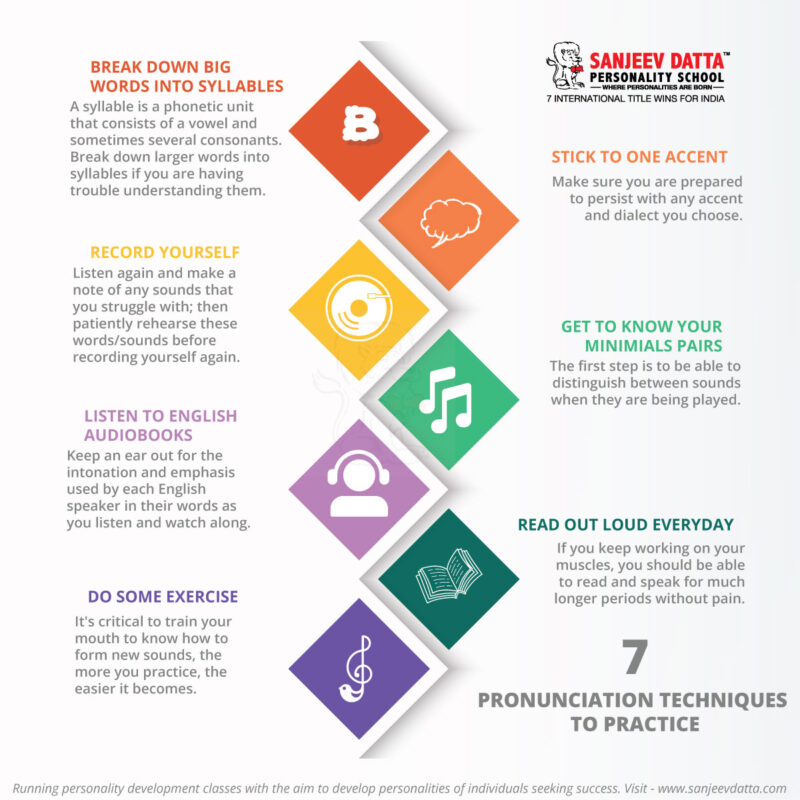Strong public speaking skills are essential for effective communication and can have far-reaching consequences in our personal and professional lives. The way we speak and the words we choose greatly influence the outcome of any conversation, whether we are giving a speech, leading a meeting, or just chatting with friends. This article will cover several speaking techniques for improving your oratory and eloquence in public settings.
Speaking Techniques for Public Speaking
1. Putting Together the Presentation:

A solid knowledge and practice foundation is crucial for successful interpersonal communication. Before giving a speech or running a meeting, it’s important to consider the things you want to say and the way you want to say them. This pertains to both the substance and form of your intended communication. To achieve this, you may read up on the topic, make some notes, and practice giving your talk in front of an audience. If you practice ahead of time, you’ll be able to convey your message with confidence and charisma. Preparation can also help you think of answers to questions and counterarguments your audience could have so that you can handle any challenges head-on.
2. Effectiveness of Expression:

Being clear in one’s speech is essential, and it’s important to be accurate and clear while interacting with people. This means that you must make your message as simple to understand as possible by avoiding technical jargon and sticking to plain English. It is also important to speak at a manageable pace for your listeners and to pause frequently to give them time to process what you have said. If you are clear and precise in your delivery, you increase the likelihood that your message will be heard and understood.

3. Self-assurance:

The ability to communicate properly and convincingly depends much on one’s sense of self-worth. If you want to come out as confident, you need to maintain an upright stance, make eye contact, and use gestures to emphasize your points. In addition, projecting an authoritative air and speaking in a strong, clear voice will help you build credibility and win over your listeners. Confidence helps you deliver your message with poise and conviction by allowing you to push over nervousness and stage fright. Confidence in public speaking is one area where personality development training may help.
4. Taking Part in the Conversation Through Active Listening:

The ability to talk effectively relies on the speaker’s ability to listen actively to others. It involves paying close attention to what other people are saying and giving thoughtful responses. An ability to practice active listening can lead to better communication, conflict resolution, and an increased capacity for empathy and understanding. Learning a great deal about your target audience’s thoughts and concerns is possible simply by listening to them. That way, you can tailor your message to their needs and provide insightful responses to their queries and feedback.
Visit: how to improve voice and accent
5. Setting a Vivid Imaginative Scene:

To captivate and relate to an audience, the skill of storytelling may be a powerful weapon. Personal anecdotes and stories can help make your point more memorable and appealing to a wider audience. Storytelling is another technique that may be employed to add a human touch and strike an emotional chord with listeners. Whether you’re giving a speech or just chatting with friends, a good story may go a long way toward conveying your message and building rapport with your audience.
6. Humor:

Effective communication often involves using various tools, and comedy may be one of those tools. Use humor to ease tensions, lighten the mood, and start a dialogue with your listeners. However, it is crucial to use humor in a way that is appropriate for your audience and strengthens your message rather than distracting from it. Evidence shows that using humor effectively can help people warm up to you and remember what you have to say.
Visit: voice modulation exercises
7. Empathy:

Being able to put oneself in the shoes of one’s listeners is a crucial skill for public speakers. To effectively address the needs of your listeners and the issues they face, you must first understand their perspective. Furthermore, talking with empathy might help you bond with your audience and win their trust. Speaking with empathy may help you connect with your audience or friends, whether you’re giving a speech or chatting. Get in touch with the best soft skills coach to hone your ability to convey emotion in your speech.
In conclusion
All of these speaking techniques are essential tools for effective conversation. Using these strategies in your speaking may help you become a confident public speaker and improve the clarity of your messages. You may utilize these methods to become a more confident and articulate public speaker, whether you’re giving a speech, running a meeting, or chatting with friends. Whether you’re looking to make connections, solve problems, or just get your point out, these techniques for public speaking can help.
Why Sanjeev Datta Personality School?
- INTERVIEW TRAINING
- Leadership
- Presentation Training
- Social Boldness
- Dressing Etiquette
- Office Etiquette
- Communication Skills
- English Speaking
- Anger Management
- Time Management
- Team Building
- Performance Enhancer
- Soft Skills
- Goal Setting
- Career Counselling
- Student Subject Choice Counselling
- Listening Skills
- Video Presentation
- Meditation
For more details, contact us now!

